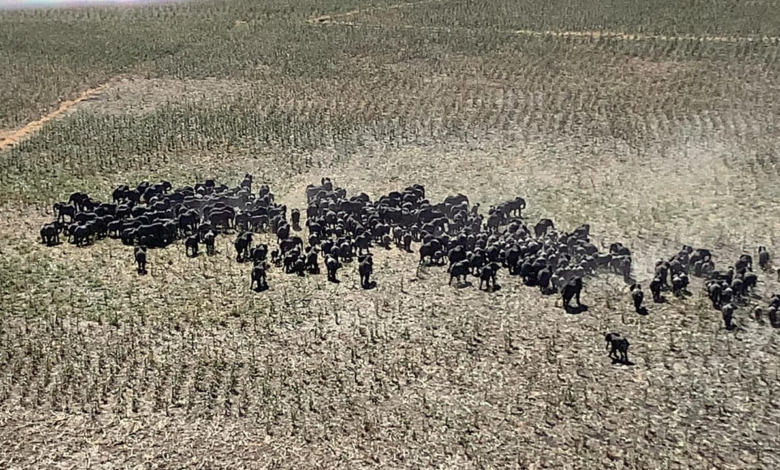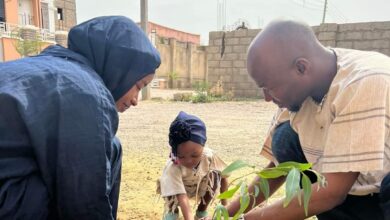Lake Chad: Humans, Elephants Compete For Harvest

The return of a Savannah Elephant herd to Rann has led to tensions and increased risk of conflict between the local population and the visitors.
Rann is located in Kala Balge local government in Borno State, Northeast Nigeria and borders Cameroon. The local government has experienced attacks and fierce clashes between Nigerian Troops, Boko Haram and Islamic State West Africa Province (ISWAP).
The first reported sighting of the elephant herd was in December 2019, when they were photographed from a United Nations helicopter during a routine humanitarian mission flight over Rann.
The area is part of the Chad Basin National Park situated within Lake Chad, Borno and Yobe States.
Once known for its wetlands, distinct Kouri cattle breed, swamp-adapted antelope, baobab trees, and migratory elephant population, the area is now a sanctuary for insurgents and epicentre of military operations against them.
Chad Basin National Park comprises the Sambisa Game Reserve, the Chingurimi Duguma and the Lake Chad Game Sanctuary, a resting ground for intra-African and inter-continental bird migrants.
In May, HumAngle reported that at least three elephants belonging to a herd of 300 savannah elephants were killed.
The elephant population in the region usually migrated between Waza Park in Far North Cameroon and Kalamaloue National Park near Chari River in Chad.
Another Subpopulation migrates south into the adjacent Chad Basin Park in Nigeria before returning to Waza Park, however, the herd movement and presence in Nigeria was affected by human activities and threats.
A 2006 count of elephants funded by the EU through Cite MIKE (Monitoring of Illegal Killing of Elephants) programme in the Sambisa Game Reserve indicated extensive farmland and human settlement encroachment was affecting the local elephant range.
The Elephant herd presence in Rann brought excitement and tension over the safety of the population and farmlands.
A memo was sent to the Federal Government for the acquisition of deterrent equipment (firecrackers) and training of villagers to scare the elephants and prevent conflict. This followed a report by the local Bulama (traditional leader) about the elephants destroying crops.
In October, the herd returned to Rann, at a time farmers were preparing to harvest their crops. Threatening the livelihood of an already struggling population.
BBC and a local Media recently reported that the elephant herd trample on crops and destroyed farmlands.
Peter Ayuba, the Director of Forestry and Wildlife in Borno State, told HumAngle by telephone that in 2019, when the Elephants arrived Rann, farmers were able to save their crops because it was already harvesting season but this time around, the elephants returned before harvest.
“Both Elephants and farmers are waiting for the crops to mature,” he added.
In 2019, the Elephants’ presence was attributed to the flood in the area but their return indicates that they found the area conducive with food and less human activity.
This is especially as Boko Haram conflict has displaced the local population and reduced the exploitation of environmental resources.
Protecting the herd and preventing conflict will require concerted actions of the riparian countries of Lake Chad (Cameroon, Chad, Nigeria and Niger).
Support Our Journalism
There are millions of ordinary people affected by conflict in Africa whose stories are missing in the mainstream media. HumAngle is determined to tell those challenging and under-reported stories, hoping that the people impacted by these conflicts will find the safety and security they deserve.
To ensure that we continue to provide public service coverage, we have a small favour to ask you. We want you to be part of our journalistic endeavour by contributing a token to us.
Your donation will further promote a robust, free, and independent media.
Donate Here




